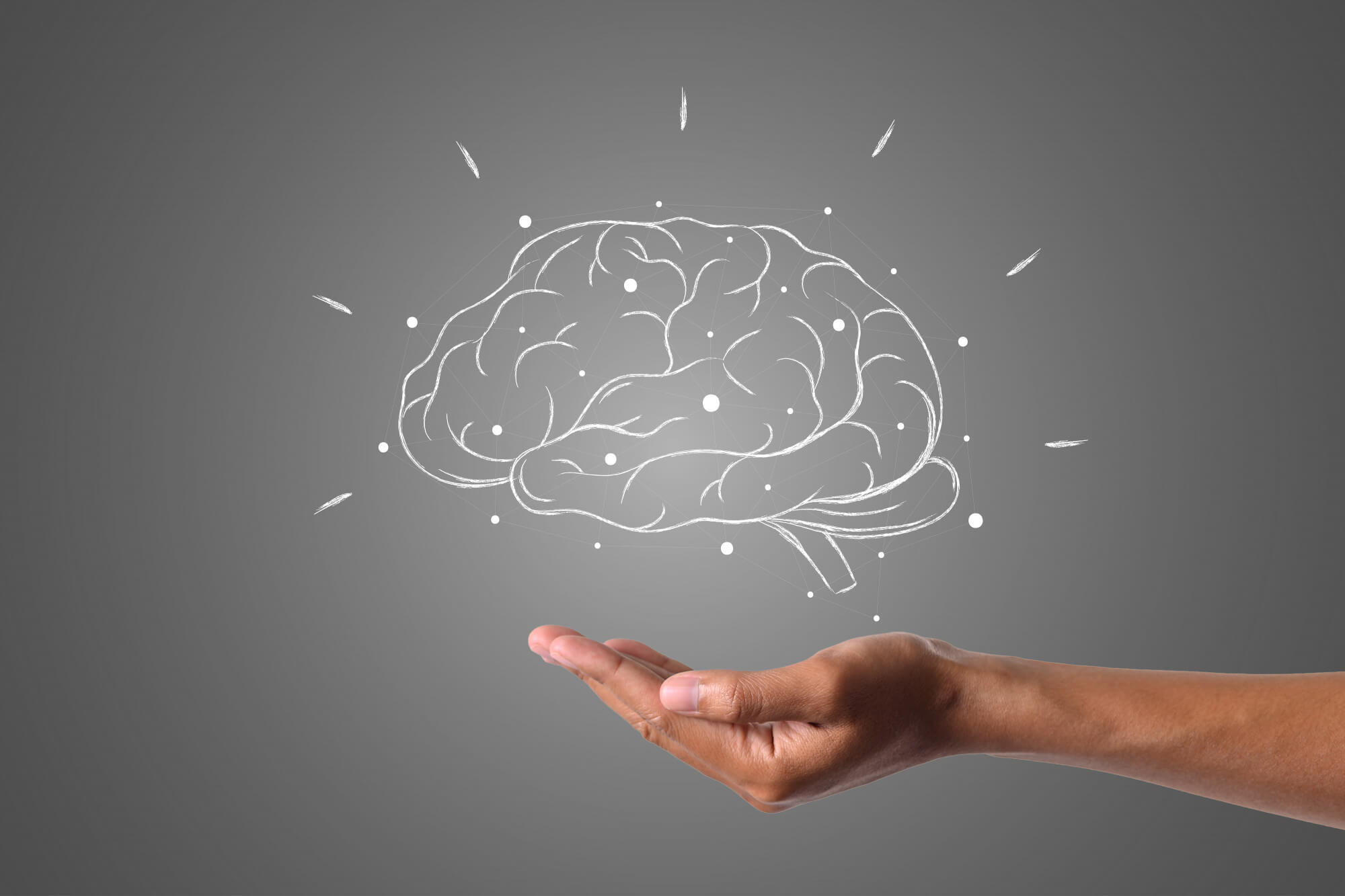Virtual Reality: A New Approach to Improving Mental Health
How innovative VR applications open the door to effective therapies and stress management

Minh Pham
Virtual reality (VR) is becoming a powerful tool for improving mental health by addressing challenges posed by the lack of behavioral health providers and the increasing prevalence of anxiety and depression. The COVID-19 pandemic has increased the need for accessible and effective treatments for mental illness and has made VR an increasingly valuable solution. By combining clinical psychology with immersive VR technologies, researchers have developed innovative approaches to assess, understand, and treat various mental health issues.
Here are a few ways virtual reality can improve mental health:
Phobias and PTSD
VR exposure therapies are remarkably effective in treating anxiety and post-traumatic stress disorder. These therapies create realistic scenarios that elicit anxiety responses and enable patients to face their fears in a controlled environment. This approach has been used successfully to treat conditions such as fear of heights and PTSD. Patients are exposed to stimuli related to their traumas until anxiety subsides, gradually de-sensitizing them to triggers.
Pain and stress relief
Virtual reality provides immersive, multi-sensory experiences that distract patients from pain and stress. By involving patients in engaging virtual environments, VR serves as a practical tool for managing pain during medical procedures. Distraction techniques, such as those offered by companies like Rocket VR, help patients deal with pain and stress by diverting their attention. VR interventions such as FDA-approved RelievRX have been shown to be effective in treating chronic low back pain without resorting to opioids.
Depression
VR applications for depression range from immersive cognitive behavioral therapy to avatar-to-avatar therapy sessions. Studies have shown that using VR to perform therapeutic exercises and interventions can reduce the severity of depression and self-destruction. Virtual scenarios to promote self-compassion have proven to be particularly effective in improving patients' emotional state and self-perception.
Improved mindfulness
Virtual reality has the potential to revolutionize mindfulness and meditation practices by providing multi-sensory experiences. Users can virtually explore various environments while guided animations help them focus on their breath, resulting in a more intense and calming meditation experience. Research shows that VR-based mindfulness training is superior to traditional methods and leads to improvements in anxiety, depression, sleep quality, emotion regulation, and overall mood.
The use of virtual reality in mental health is constantly evolving and holds huge potential for transforming this field. When well thought out and carefully implemented, VR can provide attractive and affordable therapy experiences that have a lasting positive impact on people's mental health and overall wellbeing.
References
- Rothbaum, B.O. & Schwartz, A.C. (2002). Exposure Therapy for Post-Traumatic Stress Disorder. American Journal of Psychotherapy, 56(1), 59—75. https://doi.org/10.1176/appi.psychotherapy.2002.56.1.5
- BraveMind | MedVR. (n.d.). https://medvr.ict.usc.edu/projects/bravemind.html
- Falconer, C., Rovira, A., King, J., Gilbert, P., Antley, A., Fearon, P.,. Brewin, C. (2016). Embodying self-compassion within virtual reality and its effects on patients with depression. BJPsych Open, 2(1), 74-80. doi:10.1192/bjpo.bp.115.002147
- Ma, J., Zhao, D., Xu, N. & Yang, J. (2023). The Effectiveness of Immersive Virtual Reality (VR) Based Mindfulness Training on Improving Mental-Health in Adults: A Narrative Systematic Review. Explore-the Journal of Science and Healing, 19(3), 310—318. https://doi.org/10.1016/j.explore.2022.08.001
Publiziert
2.12.2024
Kategorie
Health

Experte
Virtual reality (VR) is becoming a powerful tool for improving mental health by addressing challenges posed by the lack of behavioral health providers and the increasing prevalence of anxiety and depression. The COVID-19 pandemic has increased the need for accessible and effective treatments for mental illness and has made VR an increasingly valuable solution. By combining clinical psychology with immersive VR technologies, researchers have developed innovative approaches to assess, understand, and treat various mental health issues.
Here are a few ways virtual reality can improve mental health:
Phobias and PTSD
VR exposure therapies are remarkably effective in treating anxiety and post-traumatic stress disorder. These therapies create realistic scenarios that elicit anxiety responses and enable patients to face their fears in a controlled environment. This approach has been used successfully to treat conditions such as fear of heights and PTSD. Patients are exposed to stimuli related to their traumas until anxiety subsides, gradually de-sensitizing them to triggers.
Pain and stress relief
Virtual reality provides immersive, multi-sensory experiences that distract patients from pain and stress. By involving patients in engaging virtual environments, VR serves as a practical tool for managing pain during medical procedures. Distraction techniques, such as those offered by companies like Rocket VR, help patients deal with pain and stress by diverting their attention. VR interventions such as FDA-approved RelievRX have been shown to be effective in treating chronic low back pain without resorting to opioids.
Depression
VR applications for depression range from immersive cognitive behavioral therapy to avatar-to-avatar therapy sessions. Studies have shown that using VR to perform therapeutic exercises and interventions can reduce the severity of depression and self-destruction. Virtual scenarios to promote self-compassion have proven to be particularly effective in improving patients' emotional state and self-perception.
Improved mindfulness
Virtual reality has the potential to revolutionize mindfulness and meditation practices by providing multi-sensory experiences. Users can virtually explore various environments while guided animations help them focus on their breath, resulting in a more intense and calming meditation experience. Research shows that VR-based mindfulness training is superior to traditional methods and leads to improvements in anxiety, depression, sleep quality, emotion regulation, and overall mood.
The use of virtual reality in mental health is constantly evolving and holds huge potential for transforming this field. When well thought out and carefully implemented, VR can provide attractive and affordable therapy experiences that have a lasting positive impact on people's mental health and overall wellbeing.
Experte
Referenzen
- Rothbaum, B.O. & Schwartz, A.C. (2002). Exposure Therapy for Post-Traumatic Stress Disorder. American Journal of Psychotherapy, 56(1), 59—75. https://doi.org/10.1176/appi.psychotherapy.2002.56.1.5
- BraveMind | MedVR. (n.d.). https://medvr.ict.usc.edu/projects/bravemind.html
- Falconer, C., Rovira, A., King, J., Gilbert, P., Antley, A., Fearon, P.,. Brewin, C. (2016). Embodying self-compassion within virtual reality and its effects on patients with depression. BJPsych Open, 2(1), 74-80. doi:10.1192/bjpo.bp.115.002147
- Ma, J., Zhao, D., Xu, N. & Yang, J. (2023). The Effectiveness of Immersive Virtual Reality (VR) Based Mindfulness Training on Improving Mental-Health in Adults: A Narrative Systematic Review. Explore-the Journal of Science and Healing, 19(3), 310—318. https://doi.org/10.1016/j.explore.2022.08.001
Publiziert
2.12.2024
Kategorie
Health

.svg)














